If you’re often or constantly afraid of what other people think of you, it may be difficult to live your life the way that you want. For example, you may be anxious about trying a new hobby in case other people think you look foolish. Or you might not ask someone on a date because you have an extreme fear of rejection.
In this article, you’ll learn how to care less about what other people think of you.
Sections
How to not care what people think
It’s difficult to relax, build genuine relationships, and be yourself if you’re overly focused on creating a good impression or pleasing others. These tips and exercises can help you shift your mindset and stop caring so much about what everyone else thinks about you.
1. Live by your personal values
Other peoples’ opinions and judgments may not matter so much when you have your values to guide you. Values can serve as an inner compass when you aren’t sure how to act.
For example, let’s say you value loyalty and kindness and do your best to live by these values. One day, you’re chatting with a group of friends. Someone starts making unkind remarks about another person who isn’t in the room. You want to speak up and ask your friend to stop spreading nasty gossip, but you’re afraid that everyone else will think you are too uptight.
In this situation, the easiest thing to do is nothing. But as someone who values loyalty and kindness, you realize that if you want to stay true to your values, you need to step in and try to shut down the gossip. Your commitment to your values may give you the confidence you need to stop caring so much about what everyone else is thinking.
If you aren’t sure of your own values, it may help to ask yourself the following questions:
- Do you have a role model? If so, what do you admire most about them? What are their values?
- What charitable or political causes do you support, and why?
- If you identify as a religious or spiritual person, does your belief system emphasize any specific values?
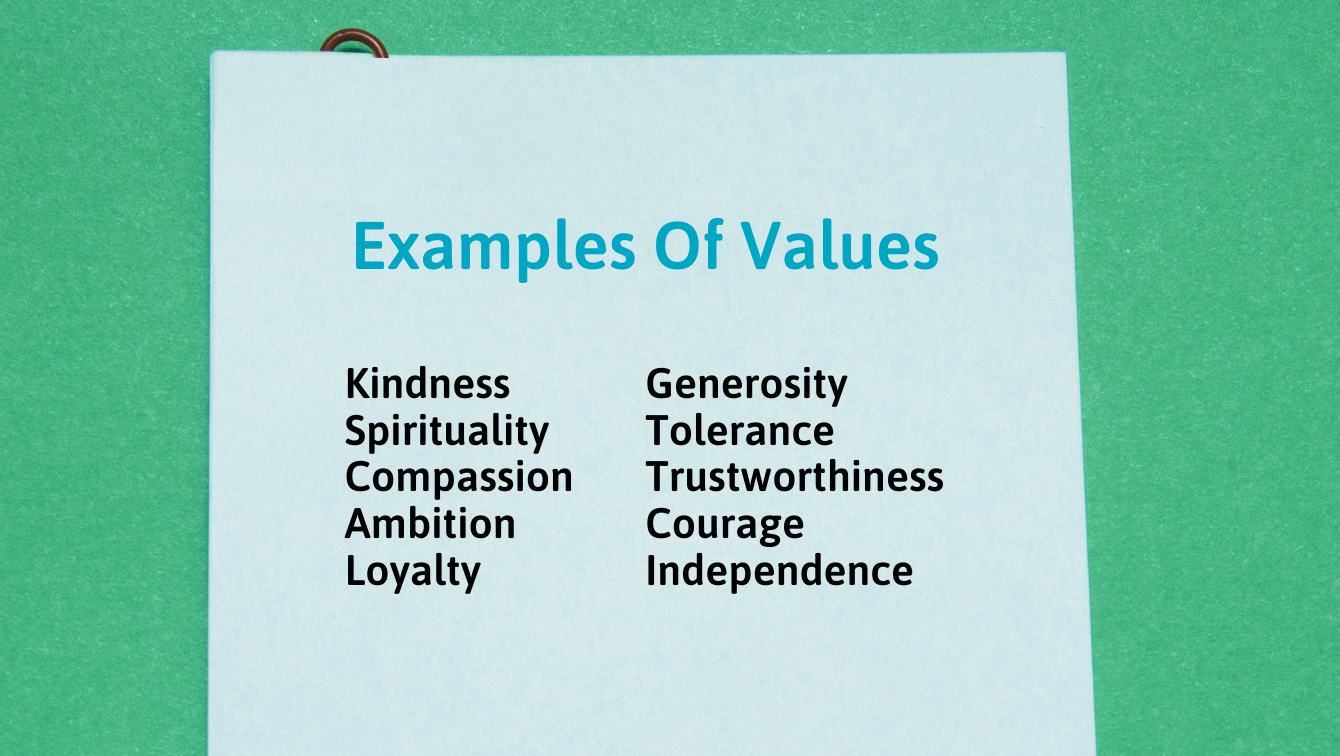
2. Pursue goals that matter to you
When your goals are meaningful to you, it may be easier to stop caring about what other people think of your choices, priorities, and lifestyle.
For example, you may decide that your top priority in life is to raise a family as a stay-at-home parent. Someone who wants to make their career a priority and earn lots of money might not understand your decision. They may judge you for being (in their eyes) unambitious. But if your goals are in alignment with your values, it may be easier to ignore their opinions.
3. Remind yourself that others don’t care what you do
It’s true that some people will judge or criticize you. But, as a general rule, others are not thinking about you very much. Remembering this fact can help you feel less self-conscious. Studies have shown that we overestimate how much other people care about our mistakes.[1]
It may help to try thinking about the last time you saw someone make a mistake or slip up in front of other people. This can help you realize that most of us don’t care what everyone else is doing unless their actions affect us in some significant way.
For example, perhaps you saw someone drop a bag of groceries or heard them mispronounce a word. Did you judge the other person harshly? Will you remember their mistake a few days or weeks from now? Probably not! Try to remember that people around you are unlikely to spend much time thinking about you or your mistakes.
4. Remember that judgments aren’t always personal
If you are worried that someone else is thinking or saying unkind things about you, it may help to realize that everyone views the world (and the other people in it) through their own lens.
Judgments can come from a place of insecurity and can reveal more about the person who is making the judgment than the person on the receiving end.
Research has shown that people tend to be critical of other lifestyles if they feel unhappy or insecure with their own life choices.
For example, according to one study, people tend to hold their own relationship status up as the ideal, especially if they think it isn’t going to change in the foreseeable future.[2] So someone who feels trapped in an unhappy marriage may claim that being married is in some way better than being single, even if it’s clear they are unhappy in their relationship.
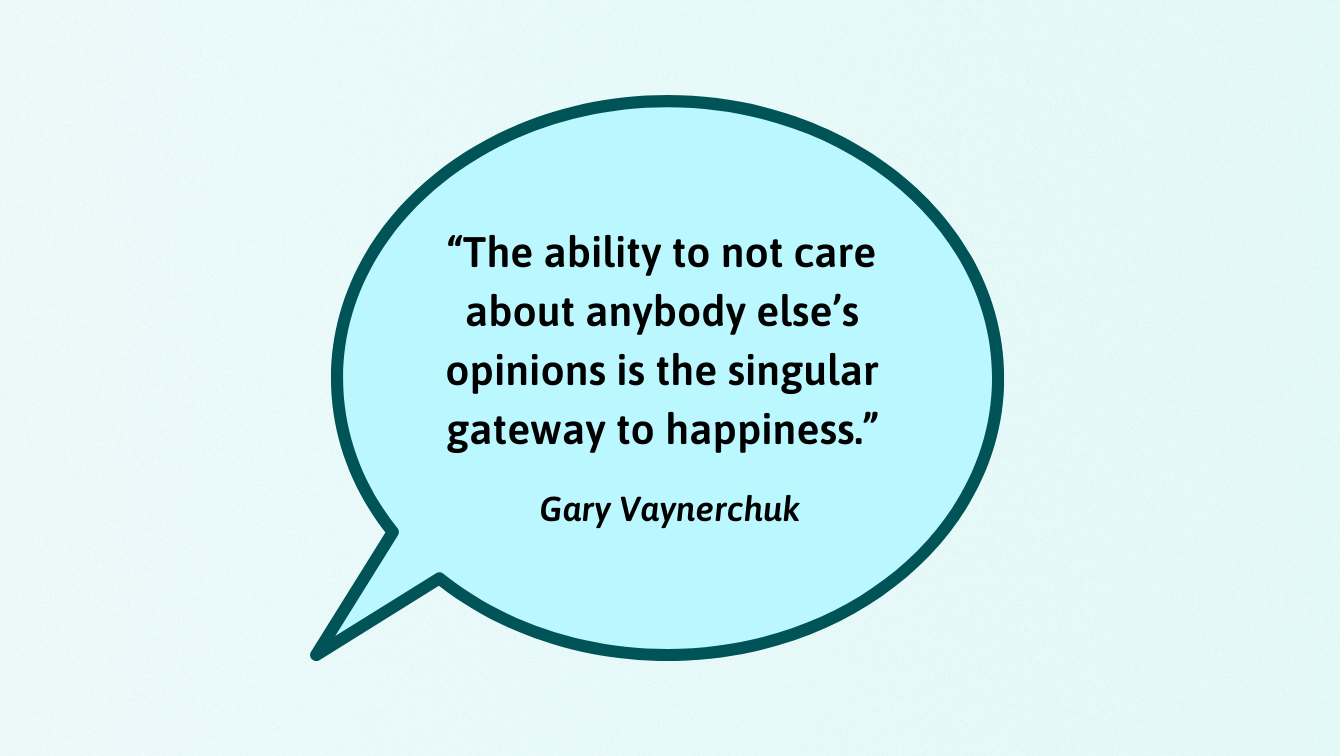
5. Challenge your negative thoughts
Remember that you don’t have to accept every thought you have about yourself. Try to challenge your negative thinking; it may help you feel less self-conscious.
For example, let’s say you’re in a meeting at work. You’re surrounded by people who you think come across as more confident and capable than you. You start thinking, “I bet everyone else thinks I don’t belong here. They probably don’t like me.”
When you have a thought like this, it can help to ask yourself these questions:
- Do I have good evidence that this thought is really true?
- Can I think of a more optimistic (yet still realistic) way to view this situation?
In the example above, you could try telling yourself, “I can’t see inside everyone’s heads, so I can’t possibly know what they think of me. I don’t have any solid evidence that this thought is true. In fact, they’re probably busy thinking about lots of other things. The reality is that I feel insecure right now, but that doesn’t mean I shouldn’t be here, and it doesn’t mean other people think I’m incompetent.”
6. Prepare responses for worst-case scenarios
You may be less afraid of other people’s opinions if you’re ready to deal with their judgment. If you are worried about a specific scenario, it can help to mentally prepare for how you might deal with an awkward situation.
For example, let’s say you’re going to a party and you’re trying to decide what to wear. You recently bought a new shirt that you like, but it’s not your usual style. You’re worried that other people at the party will think that it looks bad.
In this kind of scenario, it may help to ask yourself these questions:
- What’s the worst that could happen?
- If my fear came true, how would I handle it?
- If my fear came true, would it affect me weeks or months later?
In this case, the realistic worst-case scenario might be that someone stares and laughs at your shirt before making an unkind comment.
Although you’d probably feel awkward and embarrassed, there are several ways you could handle the situation. If you didn’t feel able to say anything, you could simply walk away. Or, if you were feeling more assertive, you could say, “That’s a rude and completely unnecessary thing to say.”
“The ability to not care about anybody else’s opinions is the singular gateway to happiness.” – Gary Vaynerchuk
7. Try to stop judging other people
When you deliberately shut down your judgmental thoughts, it can be easier to believe that other people are giving you the benefit of the doubt too.
The next time you start judging someone harshly, try to pause and replace your criticism with a neutral or positive thought. For example, let’s say your colleague is wearing a very unflattering outfit. You catch yourself thinking, “Wow, that really doesn’t work for their body shape!”
You could replace that thought with something kinder and more positive, such as, “It’s good that they feel confident enough to wear clothes they like, even if their tastes are unusual.”
8. Learn how to cope with criticism
If you care deeply about what other people think of you, constructive criticism can feel like a major threat. But criticism may not feel so frightening if you know how to handle it. Here are a few ways to deal with criticism:
- Acknowledge your mistakes without getting defensive (e.g., “You’re right, I completely forgot to double-check the brochure layout. It was a careless oversight.”)
- Ask your critic for suggestions and advice (e.g., “I agree that I need to come across as more confident when I give presentations. Do you have any advice on how I could improve?”)
- Ask for specific examples if the criticism is vague (e.g., “I’m not sure what you meant when you told me that I should have played to my strengths on the last project. Could you give a specific example of what that would have looked like?”)
- Try to think about what you can do to improve instead of dwelling on your mistakes. It may help to make a list of things you could change. Ask a trusted friend, colleague, or mentor to help if you feel overwhelmed or aren’t sure where to focus your efforts.
- Remember that you’ve survived criticism and negative judgment on previous occasions. You’ve already proven to yourself that you can cope with it, even if it hurt at the time.
For more tips, check out the Centre for Clinical Interventions’ guide to dealing with criticism.
9. Focus on your best qualities and achievements
When you learn to like yourself, it may be easier not to care so much about what other people think of you. It can help to focus on your best traits and achievements.
Try making a list of your proudest moments and greatest accomplishments. You could also look for opportunities to use your skills in positive ways. For example, if you are a compassionate person with strong listening skills, you could sign up as a helpline volunteer.
Give yourself praise or a small reward when you finish up an important job or difficult task. Don’t rely on other people for encouragement.
10. Practice self-acceptance
If you can validate and accept yourself, you may not care so much about what other people think of you. Self-acceptance allows you to realize that you’re a worthy person, whether or not someone likes you.
Here are some ways you can develop self-acceptance:
- Grow your self-awareness: Self-aware people know and accept their strengths and weaknesses. You could start by keeping a journal, taking reputable personality tests, or evaluating your beliefs and opinions. See our guide on how to be self-aware for more ideas.
- Practice letting go of your mistakes: Self-acceptance means accepting what you’ve done in the past, including embarrassing moments and mistakes. Our guide to letting go of past mistakes may help you.
- Try to stop comparing yourself to other people: Comparisons are often destructive and probably make you feel worse about yourself. Our article on how to stop feeling inferior to others has some tips to help you stop comparing.
- Work on your body image: If you aren’t happy with your appearance, you may spend a lot of time worrying about what other people think of your looks. It might help to work on your body image. Our guide to body neutrality has some advice on how to make peace with your appearance.
11. Surround yourself with supportive people
When you feel accepted by people you like and respect, you may not care so much about what everyone else thinks. Invest your time and energy into meeting and befriending people who appreciate you.
You can build more supportive, healthier relationships by:
- Meeting likeminded people who share your values
- Learning the most common signs that a friend doesn’t respect you so you know when it’s time to stop investing in people who don’t have your best interests at heart
- Learning how to set boundaries in your relationships and making it clear that you won’t tolerate poor treatment from others
If you know or suspect that someone doesn’t like you, don’t make the mistake of assuming that you need to change their mind. You cannot appeal to everyone because we all have different tastes in friends and partners. If you try to be universally popular, you’ll only waste time and energy.
12. Learn how to make better decisions
When you are confident in your decision-making skills, you may find it easier to make choices without worrying about what everyone else thinks of you. No one makes great decisions all of the time, but it’s possible to learn the art of making better choices through deliberate practice.
There are many decision-making models you can use when you’re in a tricky situation and aren’t sure of your next steps. For example, MindTools’ 7-step process sets out how to weigh up various options and make sensible choices.
13. Consider getting professional help
If you find it very difficult to stop caring too much about what other people think, it may be a good idea to seek professional help. A therapist can help you improve your self-image, challenge the negative thoughts you have about yourself, and learn to value yourself regardless of what anyone else thinks of you.
Working with a therapist may be especially useful if you have (or believe you may have) an underlying mental health problem, such as social anxiety disorder (SAD), that makes you unusually self-conscious.
We recommend BetterHelp for online therapy, since they offer unlimited messaging and a weekly session, and are cheaper than going to a therapist's office.
Their plans start at $64 per week. If you use this link, you get 20% off your first month at BetterHelp + a $50 coupon valid for any SocialSelf course: Click here to learn more about BetterHelp.
(To receive your $50 SocialSelf coupon, sign up with our link. Then, email BetterHelp’s order confirmation to us to receive your personal code. You can use this code for any of our courses.)
Common questions
What are the benefits of not caring about what other people think?
When you no longer care too much about what people think of you, it may be easier to feel confident and relaxed in social situations. You might also feel more secure when making decisions if you aren’t worried about what people will say about your choices.
Should you care about what people think of you?
In some cases, it’s a good idea to care about what people think of you. For example, if your partner is upset by your behavior, you should care what they think if you want to improve your relationship. But in general, it’s best to look to yourself, not others, for acceptance and approval.
Do you care less about what people think as you get older?
Research shows that self-esteem increases with age, peaking around the age of 60.[3] These findings may mean that when we get older, we value and accept ourselves more. As a result, we may care less about what others think.
Why am I so concerned about what others think of me?
We have evolved to seek out approval because it gives us a sense of belonging and safety. Early humans were more likely to survive if they were part of a group, so it made sense for them to worry about being excluded or shunned.[1][4]
What is the fear of what others think of you called?
Someone who fears the opinions of other people has allodoxaphobia. “Allo” comes from the Greek word for “other.” “Doxa” comes from the Greek word for “belief” or “opinion.”
References
- Savitsky, K., Epley, N., & Gilovich, T. (2001). Do others judge us as harshly as we think? Overestimating the impact of our failures, shortcomings, and mishaps. Journal of Personality and Social Psychology, 81(1), 44–56. https://doi.org/10.1037/0022-3514.81.1.44
- Laurin, K., Kille, D. R., & Eibach, R. P. (2013). “The Way I Am Is the Way You Ought to Be.” Psychological Science, 24(8), 1523–1532. https://doi.org/10.1177/0956797612475095
- Orth, U., Erol, R. Y., & Luciano, E. C. (2018). Development of self-esteem from age 4 to 94 years: A meta-analysis of longitudinal studies. Psychological Bulletin, 144(10), 1045–1080. https://doi.org/10.1037/bul0000161
- Leary, M. R., & Cox, C. B. (2008). Belongingness motivation: A mainspring of social action. In J. Y. Shah & W. L. Gardner (Eds.), Handbook of motivation science (pp. 27–40). The Guilford Press.
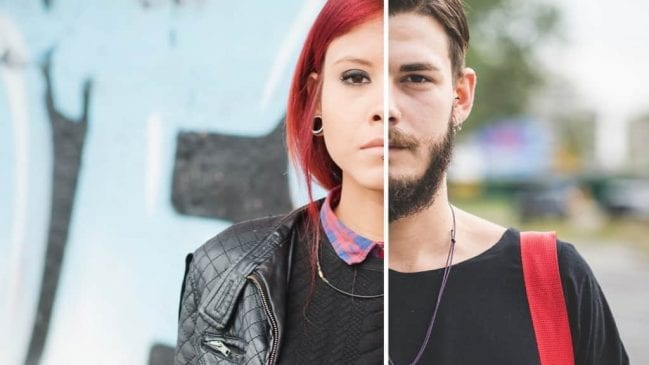




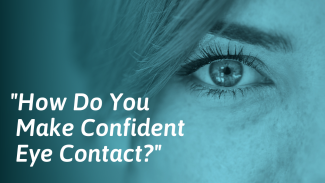


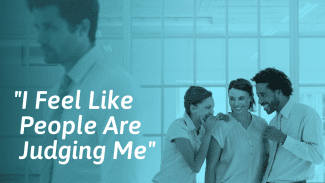
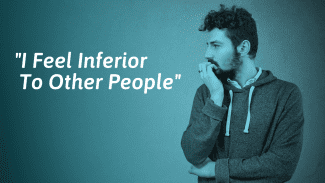
I feel scared about talking to girls, i have zero experience with women! But i know i will find the right one!
I am afraid that secretly nobody likes me. I feel like I am a drain on people around me. I constantly assume that my friends and family talk poorly about me. I feel certain that people intentionally leave me out of social events. But most of all, I fear I will be alone forever.
I feel insecure when speaking in public and I have suffered this for a longtime though I normally have public speeches once in a while. I don’t speak louder in public , each time I start speaking , the listeners ask me to increase on volume.
I’m afraid I’m not good enough for women. My whole life I’ve been in two long term relationships and the both cheated on me and left me because I was too nice and I let them walk all over me. I’ve been working on this for years and it never gets any better because at my core I’m just a nice person and all I want is someone to not take advantage of that.
I am afraid of talking to girls. I am 28 years and have à girldfriend but i still geting very nervous when i am around girls. For so many years i have tried to not show that, but i no need to be honest to myself and others! I just want to have à normal conversation with a girl, nothing more.
I’m afraid about others seeing my weird wild behavior and craziness. I tend to act that way alone but when I am around other people it changes so I guess that is the thing I am hiding from people because of the worst cases of them thinking I am insane, parents sending me to a doctor which I hate going to, or talking to a professional (another waste of time I don’t wanna deal with).
I am insecure about my intelligence and body. In school, I get high grades but it was due to cheating and exploiting the systems and feel that I learned nothing. It makes me feel that I am not good enough for anyone. A girlfriend, a friend, and my parents. I try so much to get attention from people from drawing or making music. I compare myself to others though and it makes me feel worthless. I feel it is due to my lack of intelligence. For my body as well, since I am considered skinny but have a belly and weird back. I always try to hide it and get annoyed whenever someone pokes or slaps my belly.
I am very insecure about my teeth. Previous drug use has destroyed my smile. I never truly smile anymore. I often cover my mouth when laughing to hide them. I even have trouble looking people in the eye at times because I’m sure they will notice and give a look of disgust.
I’m scared that I’m not good enough, not as smart as other people, not as funny as them. That I’m not worth people’s time. That I have to hide and cover my faults so that no one can know how flawed and imperfect I am. I fear that I cannot chat to people as well as others can.
I fear being 100% who I am in front of new people, sometimes even if I want to I’m not able.
I’m also scared of rejection when it comes to girls, aka “not being good enough”… That’s the reason I started this whole personal development journey. I wanna meet and date more women, as well as just being more outgoing and enjoying life in general.
My biggest insecure is talking in my normal voice. Im afraid that when people hear me they’ll think im weird. Pretty much just raising my voice when i talk to someone makes me feel embarrassed.
My fear is that people wont accept who I am and i’m scared that everyone one will leave me if I show people who I am.
Does Anyone feel similar,or is it just Me?
Well one thing i am really afraid about is of playing.Really,yes you heard it right,playing(Consider Basketball or Football).I am afraid of playing it real good or the ‘fun way’ I want to because,I think of what others might think of me.
I think that-if I play ‘cool’ then would they think of me as some show-off or selfish guy who only thinks of his own good.
The thing is I wanna play it ‘goood-good’ but I am pulled down to be more like ‘mechanical’.Everytime I get the ball I just pass it like ‘I dont want that ball’-I just keep skipping my turns,very opposite to what I truly want to do,which is:get the ball and do something cool what I would love to do.
I fear to express myself in front of people. May be I become more self conscious and nervous about myself. I’ll work on it. And I’m trying to write down my fears, writing gives me a feeling of satsfaction I must admit it and also trying to share my feelings to some of my close friends and as well as trying to listen to them and the thing is I’ve got one friend who’s almost introvert like me having same problems of dealing with other people.
Hey viktor!
Am gbenga.
My fear is somehow deeply rooted in me cos i cant imagine how the world would react if they know my insecurities – prob be WW3 – but because i dont want to leave in the shadow of my past. I am gonna share.
I am not that good socially, i have problem dealing with girls and i havent kissed a girl too.
I am so shy of public speaking that i talk too fast and withdraw from ANYTHING that puts me on the ‘spot’ even if it kills me.
But my greatest insecurity, one i still battle with is about my sex life, i mastubate.
So does everybody else.
I fear not being accepted by my social groups due to not being raised the same way and establishing a different mindset than others. I fear judgment of my past mistakes and being spoken about behind my back, eventually coming back to me.
I have a really bad fear of abandonment
I have fears of judgement, ridicule, and making mistakes when in a group setting. I can talk to a brick wall when I’m one on one, or even in a small group of 2-3. But make that group 6-10, or larger, and it’s in a professional school setting – I’m toast. If I have the slightest doubt about what I am saying, my voice turns basically into a whisper, so much so that the group members have to ask me to repeat myself. I don’t do it consciously. Now they notice it happening regularly, and the last time they talked about it right in front of me (“I can’t hear what she is saying”, with a little laugh). I was mortified. I am getting better at consciously remembering to speak up, but even making casual conversation before/after class (used to be effortless) is now strained on my part because I keep getting flashbacks in my head to that one moment.
Now after reading multiple articles on this site, I want to just be upfront and honest, and ask them for their help in fixing this. We are all in school to learn how to be better, and this class specifically is about working together. I know they would appreciate my honesty and sincerely try to help me, but that fear of them secretly judging me as lame or inadequate, or laughing at me behind my back is my next hurdle.
My school small group is made of really good, intelligent people. I want them to have a good opinion of me and consider me a friend. Maybe that’s why I am so nervous to begin with. I’m tired of being awkward. No more nervousness, anxiety, or lack of confidence. I know my confidence is what got me into this school in the first place. The confidence that let me solo travel in Europe for 5 weeks effortlessly. I don’t know how I dug myself into this hole but I need to get out!
Also, thank your for reading my random thoughts if you made it this far. This was very therapeutic 🙂 Hopefully it can help someone else struggling like I am!
Hey there Viktor 😀 nice article and I like the idea of commenting our fears
Okay so people may or may not relate so but here are my biggest social fears:
1. people preferring others over me
2. trusting easily which leads to getting hurt/emotional pain
3. difference. standing out e.g. if I’m doing the socially right thing, if i’m unrelatable
4. looking awkward, bad conversation skills
5. believing I am late in learning how to socialize and that others got headstart before me
6. having a socially unaccepted personality e.g. shy, quiet, untalkative
7. not knowing what to say
Glad to hear that, thank you =)
I have a fear of conversing with strangers or even acquaintances. I am always thinking about what should I say and how do they think I look in their eyes. This results in multiple awkward silence during the conversation. I would then think about the failed conversation and drag my self-confidence further down which results in me avoiding conversation altogether even with my close friend. This comes from my insecurity in myself and how I’m always thinking I’m not “like” others.
I can fully relate, to that. Scared to try and fail, yet scared to keep awayand remain a loner / loser.
I am insecure about keeping existing relations with others positive, more so than meeting new people and conversing on a superficial basis. My views on most topics are very unconventional and unpopular, and I have fears about people in my life turning against me and accusing me of being insane, as it has happened before.
I am usually insecure while in public when I get looks from strangers. I just keep a straight face instead of really being myself.
Hi, i have a girl that i really feel I fall in love towards her but I am scared of telling her that and asking her if she shares me the same felling or not actually she is one of my friends with other 3 we are a group of friends of 5 people and i am scared that she tells me no and I lose her and my friends I feel I really need advice
Hi
Although I proactively start a conversation even with strangers, I struggle to find topics to keep the conversation on.
I struggle to have conversations with people I know like colleagues and with my kids sometimes.
I am insecure about my actual intelligence level, I feel like I am so much smarter and capable of so much more than I am accomplishing, however I have this fear that I see myself way beyond where others may see me. This keeps me stuck in a dead end job even though I want to be an entrepreneur and working for myself, it also keeps me from engaging in conversations for fear that I won’t be able to keep up with someone else’s knowledge and appear ignorant. My wife and friends tell me I’m smarter than I think, and even though I feel that way about myself, I find myself not believing them. Its a vicious cycle and I know its holding me back, just don’t know how to fix it.
I am really insecure about my friends making fun of me on my back. I am paranoid that they are discussing about how bad or what a fool I am once I go away. I constantly think that they are doing a prank on me.
Have your friends been doing a lot of “pranks” on you or are you just worried? They don’t sound like good friends if they are the reason you feel like that.
I am insecure about sharing knowledge to my juniors. I fear they will just take in Whatever I have learnt, grow in their careers, surpass me, and keep on enjoying their lives while I toil and spend all my time figuring out how a new concept works and teaching it to them.
I have a fear of public speaking..I suddenly start to shiver and my voice starts to crackle.But I do have the will to speak confidently which will hopefully happen one day..
I feel like I’m going through life not meeting and connecting with people in public because I’m so afraid of social pressures of what others might think If I compliment them or start a simple conversation
My biggest insecurity is my insecurity. … i fear that I wont find love, that im going to be stuck in a job that I hate and that i am going to be unhappy because of my lack of confidence in myself and my anxiety around connecting with people